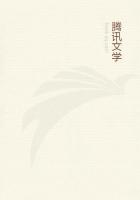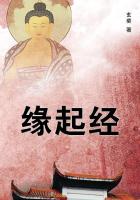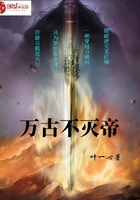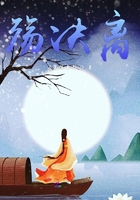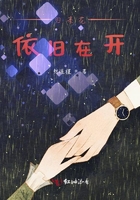It is by following this road, and by the aid of anthropology and of human history, that we propose to seek for a demonstrably actual condition of the human intellect, whereof the puzzling qualities of myth would be the natural and inevitable fruit. In all the earlier theories which we have sketched, inquirers took it for granted that the myth-makers were men with philosophic and moral ideas like their own--ideas which, from some reason of religion or state, they expressed in bizarre terms of allegory. We shall attempt, on the other hand, to prove that the human mind has passed through a condition quite unlike that of civilised men--a condition in which things seemed natural and rational that now appear unnatural and devoid of reason, and in which, therefore, if myths were evolved, they would, if they survived into civilisation, be such as civilised men find strange and perplexing.
Our first question will be, Is there a stage of human society and of the human intellect in which facts that appear to us to be monstrous and irrational--facts corresponding to the wilder incidents of myth--are accepted as ordinary occurrences of everyday life? In the region of romantic rather than of mythical invention we know that there is such a state. Mr. Lane, in his preface to the Arabian Nights, says that the Arabs have an advantage over us as story-tellers. They can introduce such incidents as the change of a man into a horse, or of a woman into a dog, or the intervention of an Afreet without any more scruple than our own novelists feel in describing a duel or the concealment of a will. Among the Arabs the agencies of magic and of spirits are regarded as at least as probable and common as duels and concealments of wills seem to be thought by European novelists. It is obvious that we need look no farther for the explanation of the supernatural events in Arab romances. Now, let us apply this system to mythology. It is admitted that Greeks, Romans, Aryans of India in the age of the Sanskrit commentators, and Egyptians of the Ptolemaic and earlier ages, were as much puzzled as we are by the mythical adventures of their gods. But is there any known stage of the human intellect in which similar adventures, and the metamorphoses of men into animals, trees, stars, and all else that puzzles us in the civilised mythologies, are regarded as possible incidents of daily human life?
Our answer is, that everything in the civilised mythologies which we regard as irrational seems only part of the accepted and natural order of things to contemporary savages, and in the past seemed equally rational and natural to savages concerning whom we have historical information. Our theory is, therefore, that the savage and senseless element in mythology is, for the most part, a legacy from the fancy of ancestors of the civilised races who were once in an intellectual state not higher, but probably lower, than that of Australians, Bush-men, Red Indians, the lower races of South America, and other worse than barbaric peoples. As the ancestors of the Greeks, Aryans of India, Egyptians and others advanced in civilisation, their religious thought was shocked and surprised by myths (originally dating from the period of savagery, and natural in that period, though even then often in contradiction to morals and religion) which were preserved down to the time of Pausanias by local priesthoods, or which were stereotyped in the ancient poems of Hesiod and Homer, or in the Brahmanas and Vedas of India, or were retained in the popular religion of Egypt. This theory recommended itself to Lobeck. "We may believe that ancient and early tribes framed gods like unto themselves in action and in experience, and that the allegorical softening down of myths is the explanation added later by descendants who had attained to purer ideas of divinity, yet dared not reject the religion of their ancestors."
The senseless element in the myths would, by this theory, be for the most part a "survival"; and the age and condition of human thought whence it survived would be one in which our most ordinary ideas about the nature of things and the limits of possibility did not yet exist, when all things were conceived of in quite other fashion; the age, that is, of savagery.
We have been asked to DEFINE a savage. He cannot be defined in an epigram, but by way of choice of a type:--1. In material equipment the perfect savage is he who employs tools of stone and wood, not of metal; who is nomadic rather than settled; who is acquainted (if at all) only with the rudest forms of the arts of potting, weaving, fire-******, etc.; and who derives more of his food from the chase and from wild roots and plants than from any kind of agriculture or from the flesh of domesticated animals.
2. In psychology the savage is he who (extending unconsciously to the universe his own implicit consciousness of personality) regards all natural objects as animated and intelligent beings, and, drawing no hard and fast line between himself and the things in the world, is readily persuaded that men may be metamorphosed into plants, beasts and stars; that winds and clouds, sun and dawn, are persons with human passions and parts; and that the lower animals especially may be creatures more powerful than himself, and, in a sense, divine and creative.
3. In religion the savage is he who (while often, in certain moods, conscious of a far higher moral faith) believes also in ancestral ghosts or spirits of woods and wells that were never ancestral; prays frequently by dint of magic; and sometimes adores inanimate objects, or even appeals to the beasts as supernatural protectors.
4. In society the savage is he who (as a rule) bases his laws on the well-defined lines of totemism--that is, claims descent from or other close relation to natural objects, and derives from the sacredness of those objects the sanction of his marriage prohibitions and blood-feuds, while he makes skill in magic a claim to distinguished rank.


